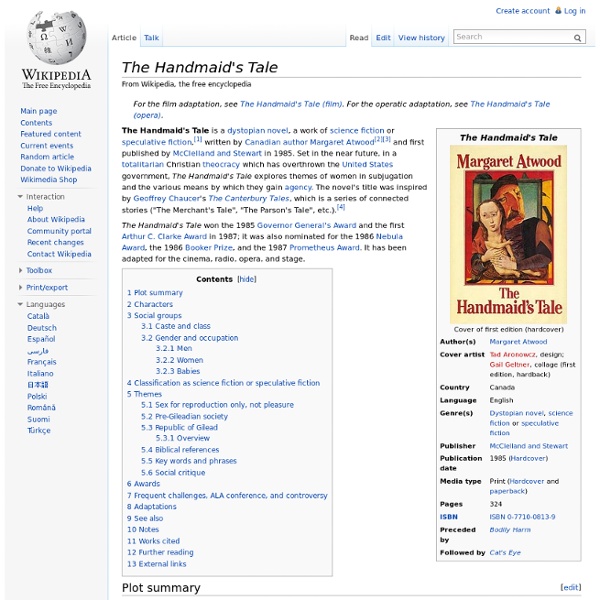The Handmaid's Tale (wiki)

Related:
Related:



